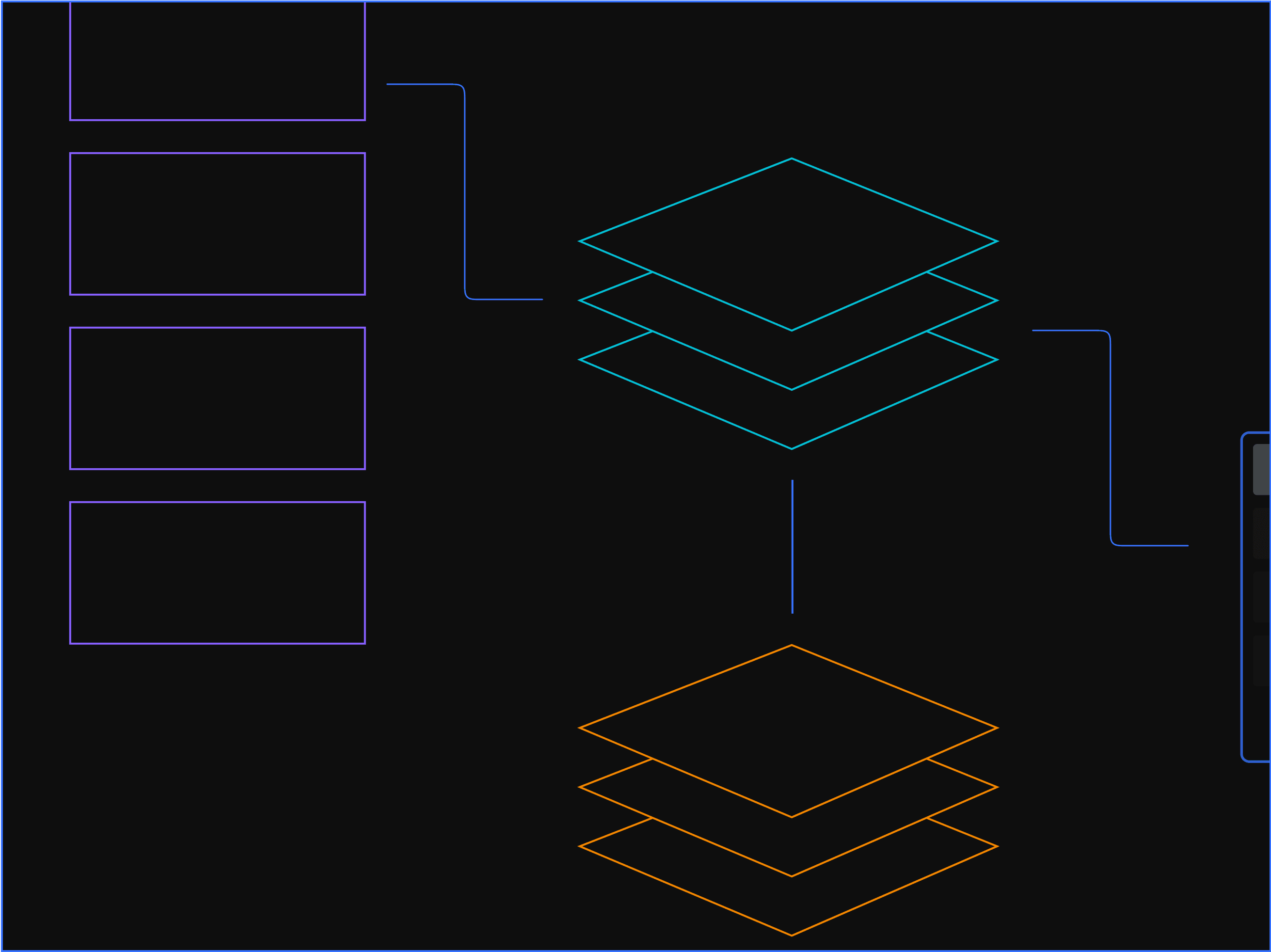Research

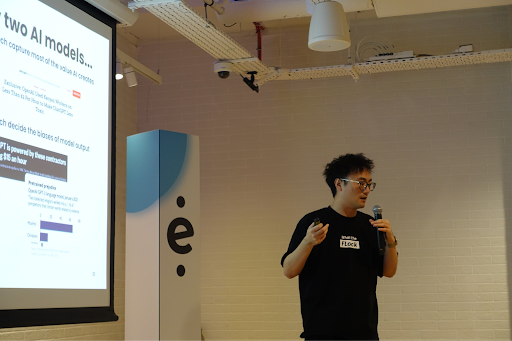
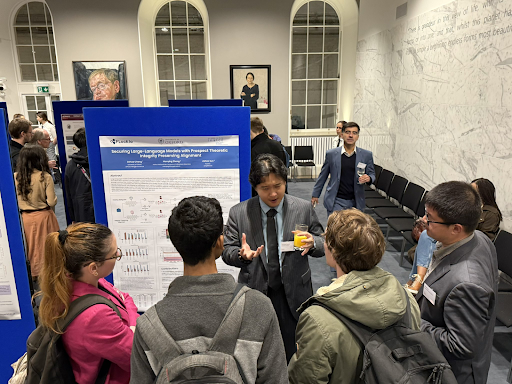
How FLock.io is decentralising AI development
FLock MiCA Whitepaper
Decentralized Minds: The AI + Blockchain Revolution
The concentration of power in centralised AI
Mitigating Data Leakage in Federated Learning via Blockchain-Enforced Encryption
In the Workshop on Privacy-Preserving Machine Learning at NeurIPS 2023. Awarded the Best Technical Demonstration.
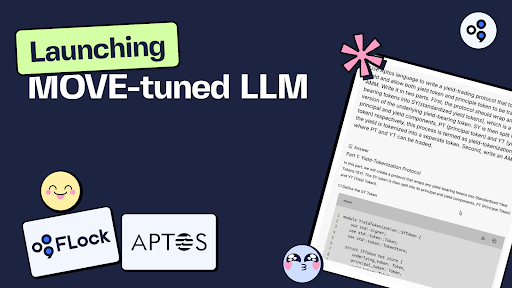
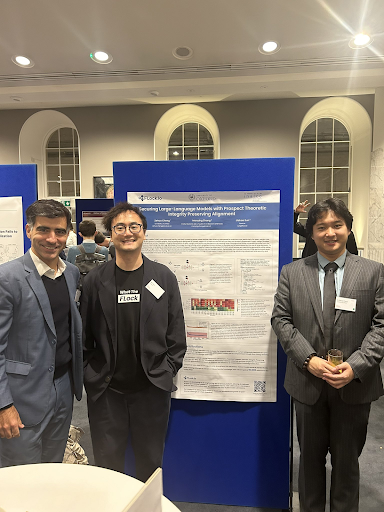
Truth Without Trust in Federated Learning
Federated Learning for Edge Devices Secured with Blockchain-Based Authentication
In the Proceedings of the 2023 IEEE International Conference on Decentralized Machine Learning Systems. Honored with the Best Presentation Award.

Defending Against Poisoning Attacks in Federated Learning with Blockchain
In NeurIPS 2022 Workshops on Decentralization and Trustworthy Machine Learning in Web3: Methodologies, Platforms,
zkFL: Zero-Knowledge Proof-based Gradient Aggregation for Federated Learning
2024 AI Trends to Watch Out for: The Rise of RAG and MoE
The vulnerabilities of centralised AI
Boosting Trust in Federated Learning Using Blockchain-Based Auditing Systems
Presented at the Conference on Trustworthy and Reliable AI (TRA) 2023. Runner-up in Best Application Paper.
Learn More About FLock
UnrivaledResearch and Groundwork
Decentralised AI in both Web2 and Web3 | FLockCON 2025
FLock’s deFL Blockchain Solution ft. Medical Scenario
FLock.io Pitch @ SXSW 2023
What the FLock?
FLock Co-Creation Walkthrough
Decentralized Scaling with FLock.io | FLockCON 2025
Decentralised AI in both Web2 and Web3 | FLockCON 2025
FLock’s deFL Blockchain Solution ft. Medical Scenario
FLock.io Pitch @ SXSW 2023
What the FLock?
FLock Co-Creation Walkthrough
Decentralized Scaling with FLock.io | FLockCON 2025
Decentralised AI in both Web2 and Web3 | FLockCON 2025
FLock’s deFL Blockchain Solution ft. Medical Scenario
Read OurResearch
Privacy Preserved Blood Glucose Level Cross-Prediction: An Asynchronous Decentralized Federated Learning Approach
Newly diagnosed Type 1 Diabetes (T1D) patients often struggle to obtain effective Blood Glucose (BG) prediction models due to the lack of sufficient BG data from Continuous Glucose Monitoring (CGM), presenting a significant "cold start" problem in patient care.
Chengzhe Piao, Taiyu Zhu, Yu Wang, Stephanie E Baldeweg, Paul Taylor, Pantelis Georgiou, Jiahao Sun, Jun Wang, Kezhi Li
A Control Theoretic Approach to Decentralized AI Economy Stabilization via Dynamic Buyback-and-Burn Mechanisms
The democratization of artificial intelligence through decentralized networks represents a paradigm shift in computational provisioning, yet the long-term viability of these ecosystems is critically endangered by the extreme volatility of their native economic layers.
Author: Zehua Cheng, Wei Dai, Zhipeng Wang, Rui Sun, Nick Wen, Jiahao Sun
SoK: Decentralized AI (DeAI)
The centralization of Artificial Intelligence (AI) poses significant challenges, including single points of failure, inherent biases, data privacy concerns, and scalability issues. These problems are especially prevalent in closed-source large language models (LLMs), where user data is collected and used without transparency.
Author: Z. Wang, R. Sun, E. Lui, V. Shah, X. Xiong, J. Sun, D. Crapis, W. Knottenbelt
AIArena: A Blockchain-Based Decentralized AI Training Platform
The rapid advancement of AI has underscored critical challenges in its development and implementation, largely due to centralized control by a few major corporations. This concentration of power intensifies biases within AI models, resulting from inadequate governance and oversight mechanisms.
Author: Z. Wang, R. Sun, E. Lui, T. Zhou, Y. Wen, J. Sun
FLock: Defending Malicious Behaviors in Federated Learning with Blockchain
Federated learning (FL) is a promising way to allow multiple data owners (clients) to collaboratively train machine learning models without compromising data privacy.
Author: N. Dong, J. Sun, Z. Wang, S. Zhang, S. Zheng
Defending Against Poisoning Attacks in Federated Learning with Blockchain
In the era of deep learning, federated learning (FL) presents a promising approach that allows multi-institutional data owners, or clients, to collaboratively train machine learning models without compromising data privacy.
Author:N. Dong, Z. Wang, J. Sun, M. Kampffmeyer, W. Knottenbelt and E. Xing
zkFL: Zero-Knowledge Proof-based Gradient Aggregation for Federated Learning
Federated learning (FL) is a machine learning paradigm, which enables multiple and decentralized clients to collaboratively train a model under the orchestration of a central aggregator.
Author: Z. Wang, N. Dong, J. Sun, W. Knottenbelt and Y. Guo
GARNN: An Interpretable Graph Attentive Recurrent Neural Network for Predicting Blood Glucose Levels via Multivariate Time Series
Accurate prediction of future blood glucose (BG) levels can effectively improve BG management for people living with diabetes, thereby reducing complications and improving quality of life.
Chengzhe Piao, Taiyu Zhu, Stephanie E Baldeweg, Paul Taylor, Pantelis Georgiou, Jiahao Sun, Jun Wang, Kezhi Li
Visual Language Model for Preclinical Toxicologic Liver Histopathology Assessment
Preclinical drug safety assessment is a critical step in drug development that relies on time-consuming manual histopathological examination, which is prone to high inter-observer variability.
Zehua Cheng, Wei Dai, Jiahao Sun
Multi-Continental Healthcare Modelling Using Blockchain-Enabled Federated Learning
One of the biggest challenges of building artificial intelligence (AI) model in healthcare area is the data sharing.
Rui Sun, Zhipeng Wang, Hengrui Zhang, Ming Jiang, Yizhe Wen, Jiqun Zhang, Jiahao Sun, Shuoying Zhang, Erwu Liu, Kezhi Li
Privacy Preserved Blood Glucose Level Cross-Prediction: An Asynchronous Decentralized Federated Learning Approach
Newly diagnosed Type 1 Diabetes (T1D) patients often struggle to obtain effective Blood Glucose (BG) prediction models due to the lack of sufficient BG data from Continuous Glucose Monitoring (CGM), presenting a significant "cold start" problem in patient care.
Chengzhe Piao, Taiyu Zhu, Yu Wang, Stephanie E Baldeweg, Paul Taylor, Pantelis Georgiou, Jiahao Sun, Jun Wang, Kezhi Li
A Control Theoretic Approach to Decentralized AI Economy Stabilization via Dynamic Buyback-and-Burn Mechanisms
The democratization of artificial intelligence through decentralized networks represents a paradigm shift in computational provisioning, yet the long-term viability of these ecosystems is critically endangered by the extreme volatility of their native economic layers.
Author: Zehua Cheng, Wei Dai, Zhipeng Wang, Rui Sun, Nick Wen, Jiahao Sun
SoK: Decentralized AI (DeAI)
The centralization of Artificial Intelligence (AI) poses significant challenges, including single points of failure, inherent biases, data privacy concerns, and scalability issues. These problems are especially prevalent in closed-source large language models (LLMs), where user data is collected and used without transparency.
Author: Z. Wang, R. Sun, E. Lui, V. Shah, X. Xiong, J. Sun, D. Crapis, W. Knottenbelt
AIArena: A Blockchain-Based Decentralized AI Training Platform
The rapid advancement of AI has underscored critical challenges in its development and implementation, largely due to centralized control by a few major corporations. This concentration of power intensifies biases within AI models, resulting from inadequate governance and oversight mechanisms.
Author: Z. Wang, R. Sun, E. Lui, T. Zhou, Y. Wen, J. Sun
FLock: Defending Malicious Behaviors in Federated Learning with Blockchain
Federated learning (FL) is a promising way to allow multiple data owners (clients) to collaboratively train machine learning models without compromising data privacy.
Author: N. Dong, J. Sun, Z. Wang, S. Zhang, S. Zheng
Defending Against Poisoning Attacks in Federated Learning with Blockchain
In the era of deep learning, federated learning (FL) presents a promising approach that allows multi-institutional data owners, or clients, to collaboratively train machine learning models without compromising data privacy.
Author:N. Dong, Z. Wang, J. Sun, M. Kampffmeyer, W. Knottenbelt and E. Xing
zkFL: Zero-Knowledge Proof-based Gradient Aggregation for Federated Learning
Federated learning (FL) is a machine learning paradigm, which enables multiple and decentralized clients to collaboratively train a model under the orchestration of a central aggregator.
Author: Z. Wang, N. Dong, J. Sun, W. Knottenbelt and Y. Guo
GARNN: An Interpretable Graph Attentive Recurrent Neural Network for Predicting Blood Glucose Levels via Multivariate Time Series
Accurate prediction of future blood glucose (BG) levels can effectively improve BG management for people living with diabetes, thereby reducing complications and improving quality of life.
Chengzhe Piao, Taiyu Zhu, Stephanie E Baldeweg, Paul Taylor, Pantelis Georgiou, Jiahao Sun, Jun Wang, Kezhi Li
Visual Language Model for Preclinical Toxicologic Liver Histopathology Assessment
Preclinical drug safety assessment is a critical step in drug development that relies on time-consuming manual histopathological examination, which is prone to high inter-observer variability.
Zehua Cheng, Wei Dai, Jiahao Sun
Multi-Continental Healthcare Modelling Using Blockchain-Enabled Federated Learning
One of the biggest challenges of building artificial intelligence (AI) model in healthcare area is the data sharing.
Rui Sun, Zhipeng Wang, Hengrui Zhang, Ming Jiang, Yizhe Wen, Jiqun Zhang, Jiahao Sun, Shuoying Zhang, Erwu Liu, Kezhi Li
Privacy Preserved Blood Glucose Level Cross-Prediction: An Asynchronous Decentralized Federated Learning Approach
Newly diagnosed Type 1 Diabetes (T1D) patients often struggle to obtain effective Blood Glucose (BG) prediction models due to the lack of sufficient BG data from Continuous Glucose Monitoring (CGM), presenting a significant "cold start" problem in patient care.
Chengzhe Piao, Taiyu Zhu, Yu Wang, Stephanie E Baldeweg, Paul Taylor, Pantelis Georgiou, Jiahao Sun, Jun Wang, Kezhi Li
A Control Theoretic Approach to Decentralized AI Economy Stabilization via Dynamic Buyback-and-Burn Mechanisms
The democratization of artificial intelligence through decentralized networks represents a paradigm shift in computational provisioning, yet the long-term viability of these ecosystems is critically endangered by the extreme volatility of their native economic layers.
Author: Zehua Cheng, Wei Dai, Zhipeng Wang, Rui Sun, Nick Wen, Jiahao Sun
SoK: Decentralized AI (DeAI)
The centralization of Artificial Intelligence (AI) poses significant challenges, including single points of failure, inherent biases, data privacy concerns, and scalability issues. These problems are especially prevalent in closed-source large language models (LLMs), where user data is collected and used without transparency.
Author: Z. Wang, R. Sun, E. Lui, V. Shah, X. Xiong, J. Sun, D. Crapis, W. Knottenbelt
AIArena: A Blockchain-Based Decentralized AI Training Platform
The rapid advancement of AI has underscored critical challenges in its development and implementation, largely due to centralized control by a few major corporations. This concentration of power intensifies biases within AI models, resulting from inadequate governance and oversight mechanisms.
Author: Z. Wang, R. Sun, E. Lui, T. Zhou, Y. Wen, J. Sun
FLock: Defending Malicious Behaviors in Federated Learning with Blockchain
Federated learning (FL) is a promising way to allow multiple data owners (clients) to collaboratively train machine learning models without compromising data privacy.
Author: N. Dong, J. Sun, Z. Wang, S. Zhang, S. Zheng
Defending Against Poisoning Attacks in Federated Learning with Blockchain
In the era of deep learning, federated learning (FL) presents a promising approach that allows multi-institutional data owners, or clients, to collaboratively train machine learning models without compromising data privacy.
Author:N. Dong, Z. Wang, J. Sun, M. Kampffmeyer, W. Knottenbelt and E. Xing
zkFL: Zero-Knowledge Proof-based Gradient Aggregation for Federated Learning
Federated learning (FL) is a machine learning paradigm, which enables multiple and decentralized clients to collaboratively train a model under the orchestration of a central aggregator.
Author: Z. Wang, N. Dong, J. Sun, W. Knottenbelt and Y. Guo
From Sora What We Can See: A Survey of Text-to-Video Generation
With impressive achievements made, artificial intelligence is on the path forward to artificial general intelligence.
R Sun, Y Zhang, T Shah, J Sun, S Zhang, W Li, H Duan, B Wei, R Ranjan
GARNN: An Interpretable Graph Attentive Recurrent Neural Network for Predicting Blood Glucose Levels via Multivariate Time Series
Accurate prediction of future blood glucose (BG) levels can effectively improve BG management for people living with diabetes, thereby reducing complications and improving quality of life.
Chengzhe Piao, Taiyu Zhu, Stephanie E Baldeweg, Paul Taylor, Pantelis Georgiou, Jiahao Sun, Jun Wang, Kezhi Li
Visual Language Model for Preclinical Toxicologic Liver Histopathology Assessment
Preclinical drug safety assessment is a critical step in drug development that relies on time-consuming manual histopathological examination, which is prone to high inter-observer variability.
Zehua Cheng, Wei Dai, Jiahao Sun
Multi-Continental Healthcare Modelling Using Blockchain-Enabled Federated Learning
One of the biggest challenges of building artificial intelligence (AI) model in healthcare area is the data sharing.
Rui Sun, Zhipeng Wang, Hengrui Zhang, Ming Jiang, Yizhe Wen, Jiqun Zhang, Jiahao Sun, Shuoying Zhang, Erwu Liu, Kezhi Li
Privacy Preserved Blood Glucose Level Cross-Prediction: An Asynchronous Decentralized Federated Learning Approach
Newly diagnosed Type 1 Diabetes (T1D) patients often struggle to obtain effective Blood Glucose (BG) prediction models due to the lack of sufficient BG data from Continuous Glucose Monitoring (CGM), presenting a significant "cold start" problem in patient care.
Chengzhe Piao, Taiyu Zhu, Yu Wang, Stephanie E Baldeweg, Paul Taylor, Pantelis Georgiou, Jiahao Sun, Jun Wang, Kezhi Li
